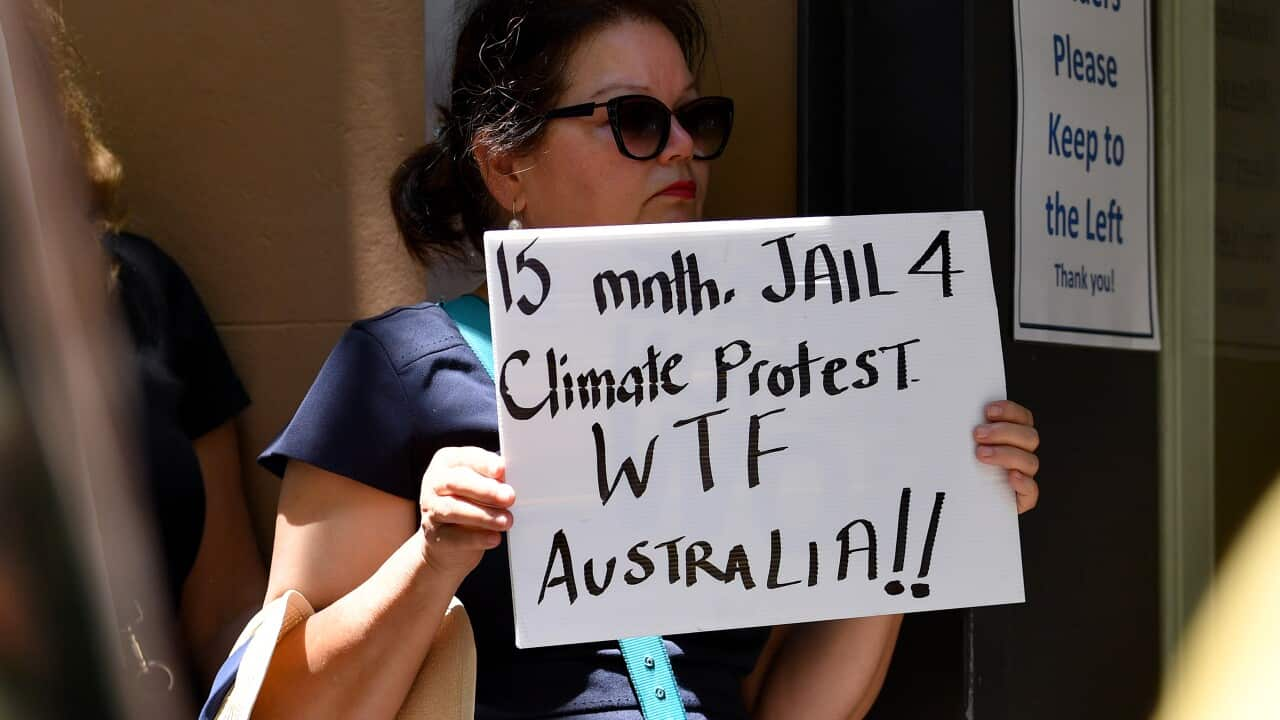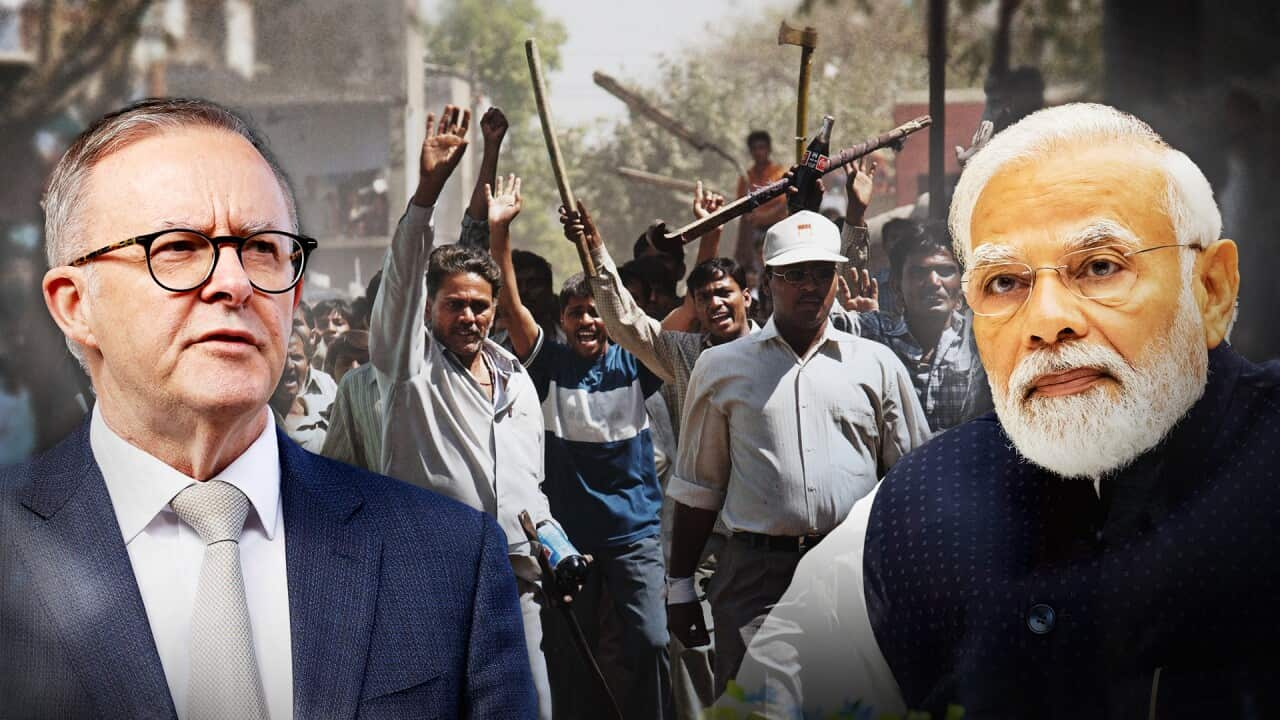KEY POINTS
- Human Rights Watch has released its annual report, including criticisms of Australia.
- It describes Australia's approach to refugees as "cruel" and says the country's reputation has been tarnished.
- The report also takes aim at high rates of Indigenous incarceration across the country.
Australia's reputation on human rights has been "tarnished" by its "cruel treatment" of refugees and high rates of Indigenous incarceration, a major report has found.
Human Rights Watch's (HRW) annual World Report, reviewing the human rights situation in nearly 100 countries, also warned Australia's "longstanding" mistreatment of children in juvenile detention was another blight on its record.
And while relations with Beijing have eased, HRW criticised the government for failing to take "concrete action" on human rights issues in China, including sanctioning officials involved in .
The document acknowledged Australia as a "vibrant democracy" which "mostly" protects the civil and political rights of its citizens, but warned its progress had been undermined by the "continued abuses" it inflicted on refugees.
"The Australian government has had some achievements in 2023 advocating for human rights on the international stage but needs to do more, particularly in the Asia-Pacific region ... Its reputation is tarnished by some significant human rights concerns," it said.
"This includes the cruel treatment of refugees and asylum seekers, as well as its failure to address systemic discrimination against First Nations people."
Nearly 50 United Nations member states raised concerns over Australia's refugee policy in March, including 10 which demanded an end to offshore processing altogether. Central to the criticism was indefinite immigration detention - - and a lack of legislation preventing children being placed behind bars.
And new asylum seekers were sent to Nauru to be placed in detention in September, just two months after the final refugee had been evacuated from the site. Labor then allocated $1.5 billion over four years to continue offshore detention.
Australia's prison system criticised
The report also drew attention to the high rate of incarceration among Indigenous people in Australia, who represent almost a third of prisoners despite making up just 3 per cent of the overall population.
"At least 19 Indigenous people died in custody in 2023 [across Australia], including a 16-year-old First Nations boy who died after harming himself in pretrial detention in October following prolonged solitary confinement," it said.

The report criticises the high level of Indigenous incarceration, and Australia's approach to youth detention. Credit: Getty
HRW's new report said that despite Australians in October, the country's state and federal governments "remain obligated to uphold the rights of Aboriginal and Torres Strait Islander people, which should remain a priority".
The report also criticised juvenile detention in Australia, after Queensland suspended its own Human Rights Act, implemented to protect children from being detained in adult jails.
The September suspension was the second time Queensland, which holds more children behind bars than any other state, had overridden the laws in under a year.
"[That was done] to detain growing numbers of children indefinitely in police watch houses, which are concrete cells typically used to detain adults for short periods," the HRW report said.
Foreign policy
Where there were economic benefits to Australia, the report painted a picture of a government wary of speaking publicly on human rights.
Australia's relationship with China, which reached a nadir during the COVID-19 pandemic, has improved under Prime Minister Anthony Albanese, who has consistently stated: "We will cooperate where we can, disagree where we must, and engage in the national interest".
While acknowledging Australia's helped secure the , HRW said it came at the cost of raising human rights with Beijing.
"Australia still has not taken concrete actions to address human rights concerns within the Chinese government, or against Australian nationals," it said.
Although Australia imposed Magnitsky-style sanctions on Iranian individuals it said were "responsible for egregious human rights abuses and violations" in March, HRW noted none were imposed on Chinese officials "for crimes against humanity in Xinjiang".
A separate HRW report in 2021 accused Beijing of "widespread and systematic policies of mass detention, torture, and cultural persecution" against the Uyghurs, a Muslim minority, in Xinjiang.
But a spokesperson for the Department of Foreign Affairs and Trade insisted Australia was "committed to protecting and promoting universal human rights globally", and said they would continue to raise concerns "directly with China at the highest levels".
"The Australian Government has serious concerns about human rights in China, including human rights violations in Xinjiang and Tibet, and the erosion of rights and freedoms in Hong Kong," they said.
"As the Foreign Minister has said, Australia employs every strategy at our disposal towards upholding human rights, consistent with our values and with our interests.
"Our approach has been to press China bilaterally and publicly, while seeking to partner with other countries and build coalitions to advocate for the protection of human rights, including in multilateral fora, such as the UN General Assembly and Human Rights Council."

Albanese has lauded Narendra Modi, despite serious allegations of human rights abuses under his leadership. Source: AAP, AP / Mark Baker
"[Australia] has continued to pursue 'quiet diplomacy' with India, declining to publicly raise human rights concerns, including recent crackdowns on civil society and the adoption of laws and policies that systemically discriminate against Muslims and Christians," the report said.
While federal parliament has opened an inquiry into a national human rights framework, Australia remains the one Western country without a human rights act or constitutional charter.



